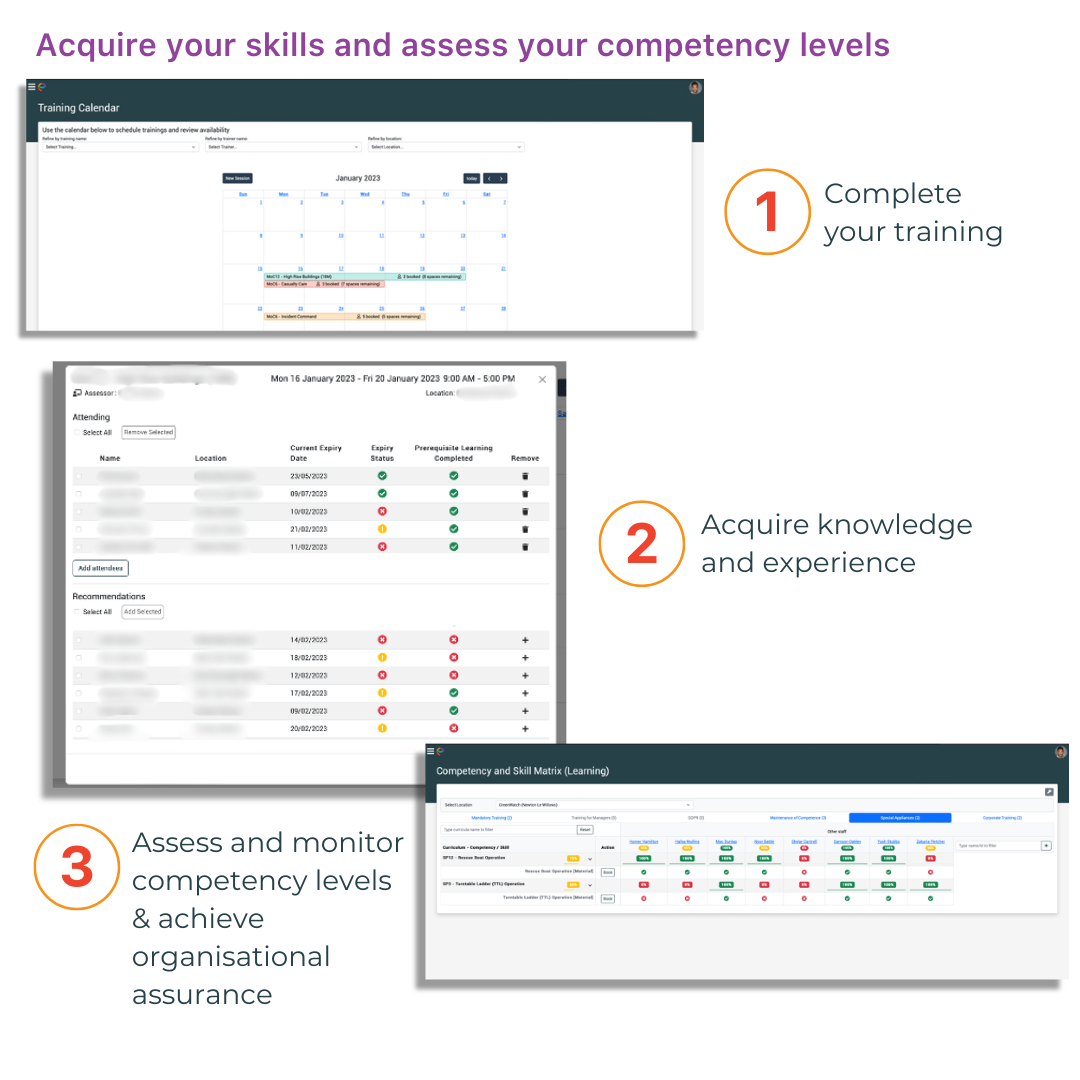Bobbie King, CEO and Co-Founder of SQEPtech, uncovers competency and skill and asks if there is really a difference between the two
Organisations constantly seek new and effective ways to develop and maintain a skilled and competent workforce. Two popular approaches are the competency-led approach and the skills-based approach.
The terms “competency” and “skill” are often used interchangeably, but they actually have distinct meanings and implications. In this article, we will explore the differences between the two, discuss the pros and cons of adopting a competency-led approach versus a skills-based approach, and where SQEPtech fits into this.
Defining competency and skill
A competency can be defined as a set of knowledge, skills, behaviours, and attributes that enable an individual to perform a task or job effectively. Competencies are often broader and more encompassing than specific skills, involving technical proficiency and interpersonal and organisational abilities.
A skill, on the other hand, is a specific ability or expertise that is acquired through training or experience. Skills can be either hard or soft, ranging from technical proficiencies like coding or data analysis to more intangible capabilities like communication and leadership.

Competency: The secret ingredient for entrepreneurial success
A competency-led approach focuses on the holistic development of an individual and the range of competencies relevant to a particular role or organisation. This approach prioritises acquiring broad-based knowledge and skills that can be applied across various contexts and situations.
One of the key advantages of a competency-led approach is that it fosters a more well-rounded and adaptable workforce. By emphasising the development of competencies such as critical thinking, problem-solving, and collaboration, individuals are better equipped to navigate complex and uncertain situations.
Additionally, a competency-led approach helps align individuals’ goals and values with the mission and vision of the organisation. By prioritising developing competencies aligned with the organisation’s strategic objectives, individuals are more likely to feel invested in and committed to their work.
However, a competency-led approach can also be more challenging to implement and measure. It requires a greater investment in training and development and a more comprehensive and ongoing evaluation of individuals’ performance and progress.
Additionally, because competencies are often more abstract and difficult to quantify than specific skills, evaluating whether an individual meets the necessary standards can be more difficult.

No one’s born a pro: Skills are made, not born
A skills-based approach, on the other hand, focuses on acquiring and demonstrating specific skills relevant to a particular role or task. This approach emphasises the importance of technical proficiency and specialist expertise. One of the key advantages of a skills-based approach is that it can be more efficient and effective in addressing immediate business needs. By prioritising the acquisition of specific skills directly applicable to a particular role or project, individuals can be more quickly and directly productive.
Additionally, a skills-based approach can give individuals a greater sense of accomplishment and mastery. By focusing on developing specific skills, individuals can gain a sense of progress and achievement that can be motivating and rewarding.
However, a skills-based approach can also be narrower and more limited in scope. It can be less adaptable to changing circumstances and less effective in addressing complex and nuanced challenges.
Additionally, because it emphasises technical proficiency over broader competencies, developing a well-rounded and adaptable workforce can be more difficult.
As you can see, both approaches have pros and cons, and the optimal approach will vary depending on the specific objectives and surroundings. While a competency-led approach might encourage a more flexible and varied workforce, a skills-based strategy might be more effective and successful in solving pressing business needs. Finding a balance between the two and giving equal weight to developing specialised technical talents and broad-based competencies is ultimately what matters.
Businesses may accomplish both short- and long-term goals by doing this and developing a workforce that is adaptable and productive. This balance can be attained with the use of an extensive training and development programme that blends competency and skills-based training. By using this approach, organisations ensure that employees have the required skills, knowledge, and practical skills to excel in their roles while also being equipped with the broader competencies needed to navigate future challenges and opportunities.
Additionally, regularly assessing and updating these training programmes based on evolving business needs and industry trends can further enhance the effectiveness of this balanced approach.
Competency and skill: The dynamic duo for business success!
We have identified the key differences, but how can businesses ensure they have the correct processes and systems in place to keep track of their employees’ training and competency levels effectively?
Implementing a talent management solution allows organisations to provide an end-to-end talent development experience that seamlessly connects their people and systems of work to drive real outcomes. By introducing a competency management solution, such as SQEPtech’s eSQEP Competency Management platform, to their learning process, our customers can gain further insight into their employees’ skills and competency levels across the board, identifying any gaps when it comes to skills and also improving employee retention.
To learn more about skills and competencies or to discuss the right solution for you, contact us at contact@sqeptech.com for an initial conversation.

This work is licensed under Creative Commons Attribution-NonCommercial-NoDerivatives 4.0 International.











